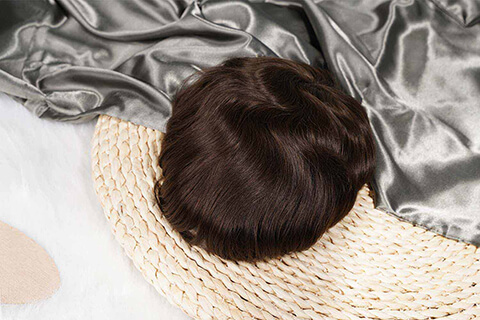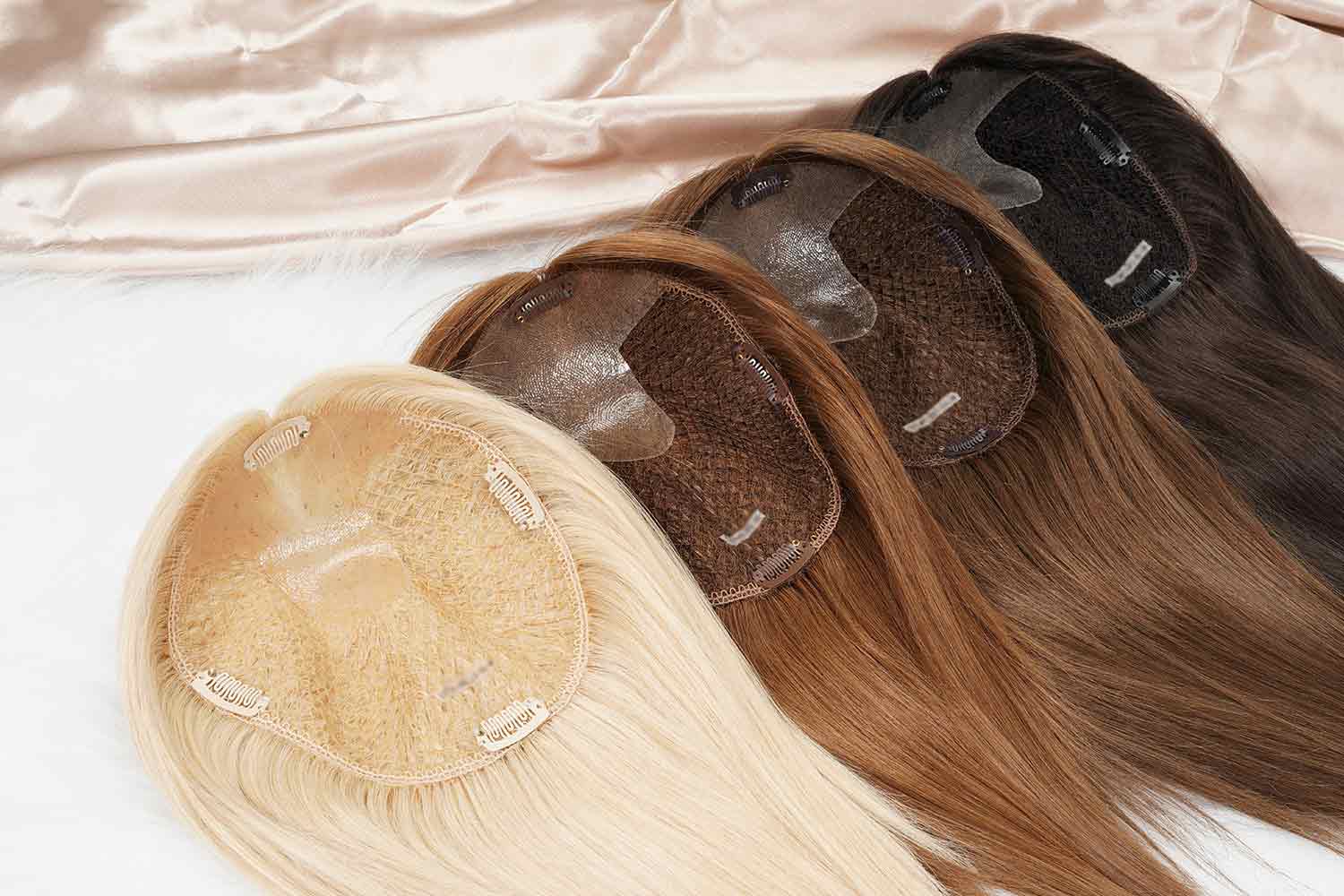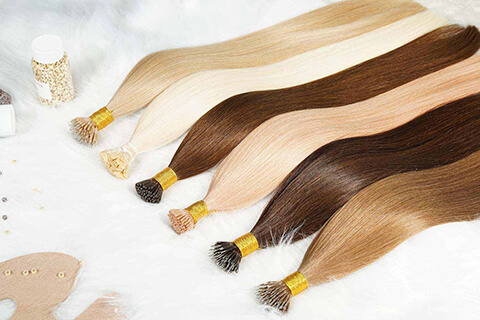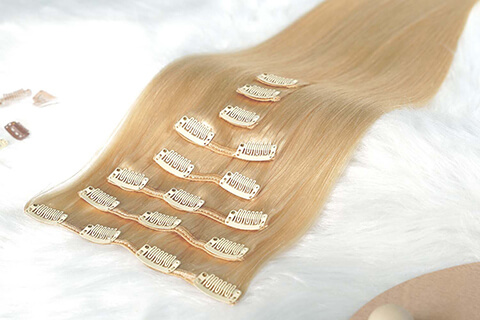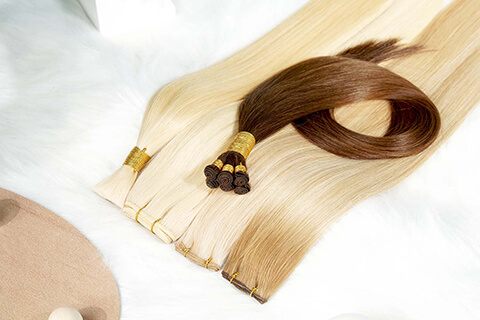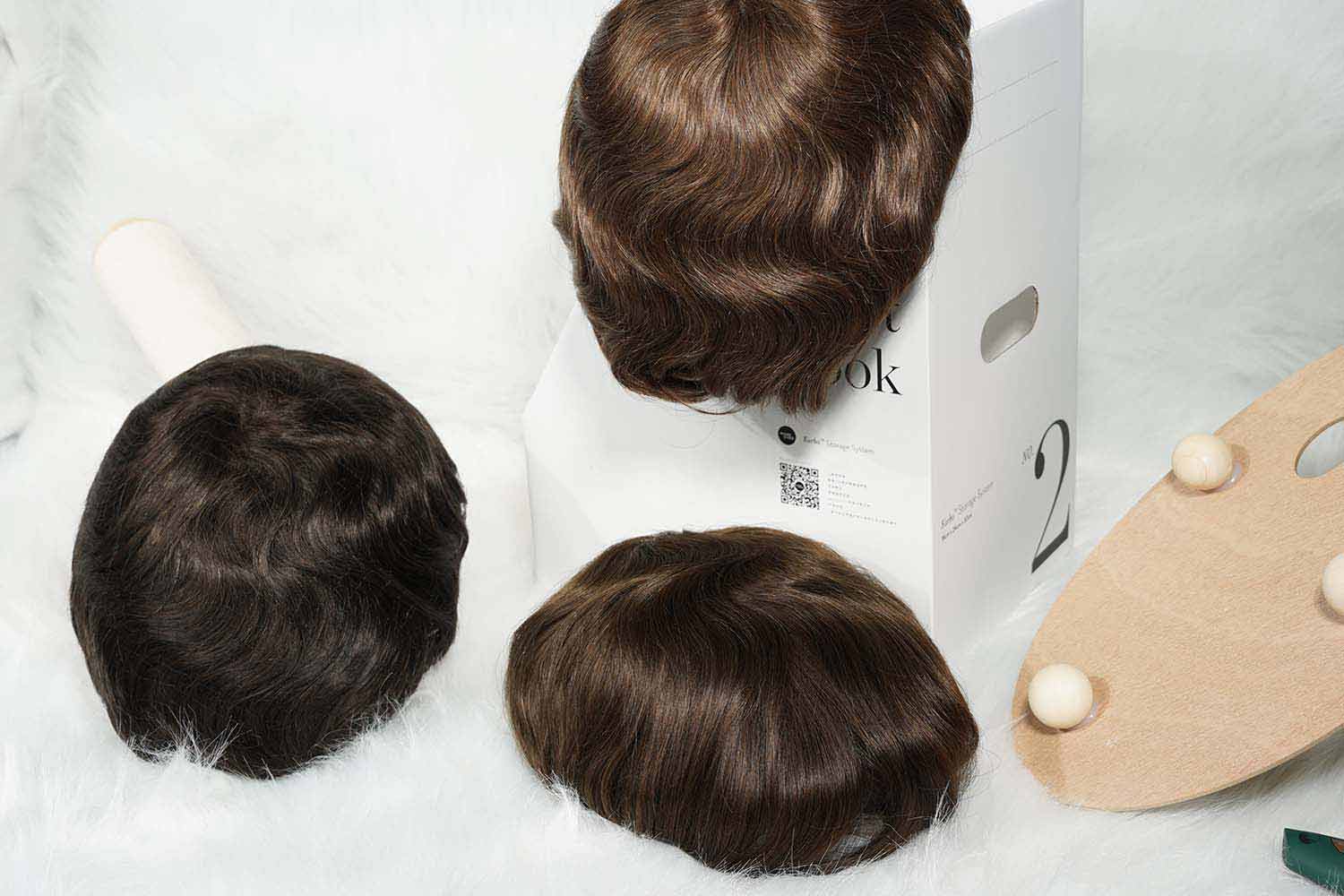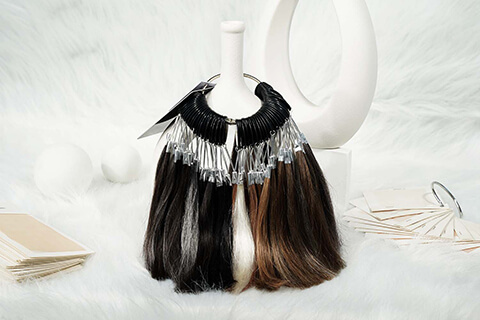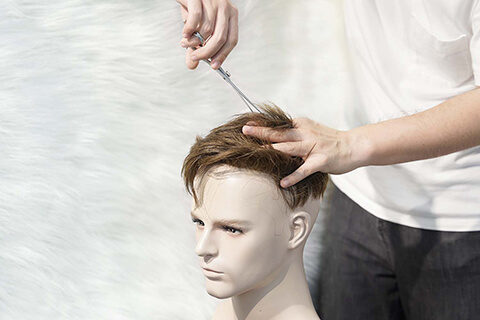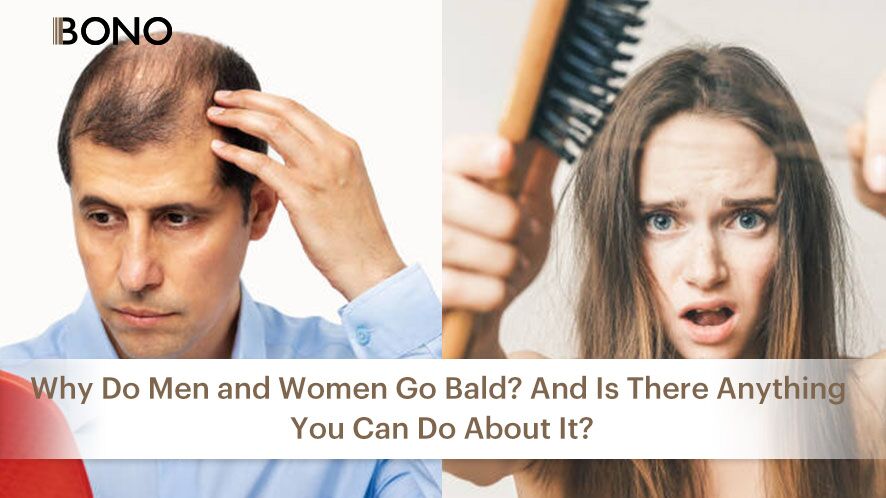PREVIEW
-
- Introduction
- Why do Men Go Bald?
- At What Age do Men Go Bald?
- Here’s Everything You Need to Know About Bald Stage
- 10 Famous Bald Celebrities and Actors 2021
- 10 Best Hairstyles and Haircuts for Balding for Men
- 10 Men’s Wigs for Baldness
- What Causes Baldness in a Woman?
- How to Stop Balding?
- Hairpieces and Wigs for Thinning and Bald Women to Buy
- Conclusion
Introduction
How did you feel when you realized you had several strands in your hands after running your hand through your hair?
You are likely wondering why the hairline in your hair is declining or why the crown of your hair is thinning. If this trend is continuing, consider what actions you will need to take to reverse it.
It’s normal that you lose 50-100 hairs a day. New hair will grow Back. But this will not always happen. If you find losing much more hair than before, you will need to talk with your doctor about reasons and treatment options.
It is extremely common for males to suffer from male-pattern baldness, also known as androgenetic alopecia. Women also suffer significant hair loss. It is estimated that over 50% of men and women will experience some form of hair loss.
Many factors can lead to hair loss. Heredity and hormonal changes are the most common reasons. The hair can also thin as a result of stress at work or in your personal life.
Hair loss comes in different ways, gradually or suddenly. No matter what kind of hair loss, it will affect our lives physically and mentally. This article will help us to find hair loss causes and provide treatment ways accordingly.
Why do Men Go Bald?
It’s a hereditary disorder known as androgenetic alopecia in most men who go bald. Approximately 95% of men’s baldness is caused by androgenetic alopecia.
The inherited characteristic of thinning hair and receding hairline in men (DHT) is due to a sensitivity to a hormone called dihydrotestosterone, a by-product of testosterone.
Male baldness may result from the following factors:
1. Genetics
It is genetic that drives most male baldness. This has to do with the number of male hormones your body produces and how your hair reacts to these hormones.
The majority of men will experience male pattern baldness (also known as androgenic alopecia) at some point in their lives.
In some cases, hair loss can also result from post-pubertal hairline recession. Male pattern baldness occurs between early and mid-20s but this is not the same.
The hairline is normally affected by a post-pubertal recession, and most men are not concerned about it. The genetic and hormonal factors are both involved in male pattern baldness. A subset of people is more likely than others to develop bald patches on their heads caused by the hormone dihydrotestosterone (or DHT, a naturally occurring steroid hormone).
In balding males especially, the horseshoe-shaped hair pattern resulting from DHT even at normal concentrations can cause the hair to stop growing and shrink.
Genetically susceptible men do not all lose their hair completely as a result of male pattern baldness.
Men can suffer from male-pattern hair loss which manifests itself in many ways, such as a receding hairline, generalized thinning, or sparse areas of hair loss around their temples.
The good news is that you can get rid of genetic baldness easily and inexpensively. DHT can be blocked both topically and at its source with treatments such as Propecia (generic for Finasteride), minoxidil, and topical hair thickening shampoos.
2. Stress
More than just a source of irritation, stress is a leading cause of illness, damaging everything from your immune system to the health of your hair.
There’s a possibility your hairline has suffered as a consequence of your extreme stress when you deal with deadlines, unrealistic expectations, or other aspects of a stressful work environment. A person may experience stress-induced baldness due to family and friends, or because of a tense relationship.
According to medical evidence, stress is associated with three types of hair loss.
First, telogen effluvium appears when your body’s stress hormones cause your hair follicles to enter a resting phase.
In most cases, such hairs do not fall out immediately, but they can start to fall out after an excess of stress hormones, which can be caused by brushing or shampooing your hair.
Stress is not always the cause behind alopecia areata, which is another type of stress-related hair loss.
It is an autoimmune disease where your immune system attacks your hair follicles, causing rapid hair loss that normally returns over time (but not always).
In addition to stress, alopecia areata can be caused by a range of factors. About 2% of adults have this condition. Some people might develop alopecia areata after a few stressful days at work, but for some people, persistent exposure to a stressful job or environment may be sufficient to cause it.
Trichotillomania is the third problem caused by stress. This condition is also called a hair-pulling disorder.
Hair loss on the scalp and/or body results in trichotillomania, a trait in which a person pulls their hair multiple times a day.
Stress-related hair loss can’t be treated with a single remedy because it’s neither genetic nor hormonal. Reducing stress levels is the most effective way to treat mental illness. This can be accomplished through lifestyle changes, behavior modifications, or by using drugs.
3. Diet
Diet may contribute to thinning hair or a receding hairline in people who do not have an inherited predisposition to hair loss or are not highly stressed.
You might lose your hair prematurely if you follow a diet short on vitamins and minerals such as vitamin D.
A high-protein diet, iron, omega-3 fatty acids, zinc, and selenium diet, most experts believe, can help you grow a full head of strong, healthy hair. The health of your hair also depends on a variety of vitamins.
Those who are vegan or vegetarian should make iron consumption a priority. Vegetarians and vegans, as per medical research, require 1.8 times as much iron as meat-eaters to avoid iron deficiency and its risk for hair loss.
4. Medications
Medications that increase stress hormones or androgens can lead to hair loss, especially if the medication causes an increase in hair growth hormones.
When compared to over-the-counter medications, dozens of prescription medications have unwanted side effects that might result in short-term or long-term hair loss:
- Some people may experience hair loss from retinoids, which are commonly used to treat skin problems and acne. Among the most commonly prescribed retinoids are isotretinoin and tretinoin. Tretinoin causes hair loss, or not. However, there is some contradictory evidence regarding this.
- Medications to treat thyroid problems, such as thyroid overactivity or inactivity, can result in diffuse hair loss in rare circumstances. Even so, it may be complicated to determine if hair loss is caused by a thyroid issue or medication prescribed to treat it.
- The use of blood pressure drugs like propranolol and ACE inhibitors like lisinopril may lead to hair loss.
You should speak to your doctor if you suspect a medication is causing hair loss, to determine if it’s the cause and if there is another option to treat it.
5. Lifestyle
It is possible for your hairline to thin if you drink, party, and do not get enough sleep.
Staying up late and not getting enough sleep may harm the health of your hair since sleep is important for virtually every area of your health.
Researchers have linked stress to telogen effluvium and diffuse hair loss, which is caused by insomnia.
Several hormones are important for hair growth when people get poor sleep.
In addition to limiting your alcohol intake, quitting smoking, and getting enough sleep, you may also be able to avoid the bad lifestyle consequences that may cause hair loss.
It’s important to remember that hair loss is primarily genetic and hormonal. Even though changing your lifestyle might prevent stress-induced hair loss, it won’t eliminate genetic baldness, which demands a different approach.
At What Age do Men Go Bald?
Hairlines change with age due to a variety of factors, including our bodies’ aging processes. What is the average age at which men begin to go bald?
Even though hair loss can begin as early as our teens.
- The hair of around 25% of males with hereditary male pattern baldness falls out before they turn 21 years old.
- It is estimated that by the age of 35, 66 percent of men have some degree of hair loss.
- Up to 50% of men will experience some form of hair loss by the age of 50.
Hair loss is caused by a variety of factors that are related to our age.
In addition to thinning hair with age, our hair naturally becomes thinner as we get older. Moreover, our follicles stop producing new hair in some cases, and our hair strands become lighter in color.
A mature person’s body also produces less hair as they age. Ordinarily, a person’s hair growth cycle lasts between two and six years. This process tends to accelerate with age, meaning that you lose hair at a much faster pace as you age.
Other factors that need to be considered include genetics, decreased hormone levels, and the development of specific thyroid disorders.
Typically, you can’t expect time to help us in hair loss situations.
Here’s Everything You Need to Know About Bald Stage
In addition to encompassing hair loss at all stages of male pattern baldness, the Norwood scale covers the entire scalp from a hairline unaffected by the condition to complete hair loss.
If you’re worried about hair loss, you might need to consider the Norwood scale. Your male pattern baldness will be more extensive the lower you go on the scale.
It is more likely that you can effectively treat male pattern baldness and prevent it from worsening if you detect it early.
You’ll find descriptions of each stage of Norwood’s multi-stage scale below, along with specific treatments that can be used as your hair loss progresses.
Type 1 (Norwood) – Stage 1
There is no hair loss around the crown, and there is little to no recession of the hairline on the first stage of Norwood’s scale, which is referred to as Type 1 hair loss.
Before male pattern baldness sets in, this is the most common hairline style in your teens and early twenties.
Hair Loss Stage 1: Treatment
Those of you who have a Norwood Type 1 hairline should count themselves fortunate.
The appearance of this type of hairline in men becomes increasingly rare as they grow older, although it’s not unusual for a man to be able to keep it in his 20s and 30s if he isn’t genetically predisposed to male pattern baldness.
Stage 1 hair loss does not need to be cured, but you still need to track if your hairline changes.
Hair Loss Stage 2 (Norwood Type 2)
Alternatively known as stage two hair loss, Norwood type 2 hair loss occurs when men experience triangle recession at their frontotemporal hairline (the hairline surrounding their temples).
Despite being less severe than other types of hair loss, this still appears to be a problem. You might notice that your hairline slopes backward when viewed from the side, giving your hairline a backward-sloping appearance.
The skin surrounding your temples may be visible from above given your hairline as a V or M.
Hair Loss Stage 2: Treatment
Hair loss caused by Norwood Type 2 is not severe. But if you’re concerned that your hair will fall out, now is the time to begin treating the problem.
If you are suffering from Norwood Type 2 hair loss, you might want to consider taking Finasteride or Minoxidil. Minoxidil works by increasing hair growth, while Finasteride works by lowering levels of DHT in the body.
Hair Loss Stage 3 (Norwood Type 3)
Compared to Norwood Type 2, hair loss is significantly more noticeable in Type 3. It becomes distinctly M-shaped or V-shaped at this point, with a receding hairline.
A receding hairline; and little or no hair at the temples are the signs of Norwood Type 3 hair loss.
Norwood Type 3 hair loss is much more difficult to disguise with the right haircut than Norwood Type 2.
Some men may also experience thinning around the crown (the top of the head) when suffering from this form of hair loss. Hair loss of this type is known as Norwood Type 3 Vertex hair loss.
Hair Loss Stage 3: Treatment
In the case of Norwood type 3 hair loss, it’s vital to address your hair loss as soon as possible.
When you are experiencing hair loss at this stage, Minoxidil and Finasteride are two hair loss drugs that can help.
It’s possible to regrow some of the hair you’ve lost from your head or hairline if you’ve lost hair just recently.
The hair transplant procedure can help restore your hairline regardless of how much hair you still have.
Hair Loss Stage 4 (Norwood Type 4)
The hair loss associated with Norwood type 4 is more severe and noticeable. Hair loss at this stage in men gives them a bald appearance due to a lot of hair loss around the hairline.
Their crown or vertex scalp has sparse hair or no hair at all.
A thick band of dense hair separates the balding area around a man’s crown from his hairline in stage four hair loss.
Hair Loss Stage 4: Treatment
To stop the progression of your Norwood Type 4 male pattern baldness, you must act quickly after you have already experienced it.
Due to the severity of this form of hair loss, it is unlikely that you will be able to regrow much hair.
On the other hand, Finasteride and Minoxidil could help you maintain what hair you already have while also allowing you to gain more size, thickness, and coverage.
This is a time when you may need a hair transplant procedure to restore hairline thickness and volume.
Hair Loss Stage 5 (Norwood Type 5)
Hair loss progresses to Norwood Type 5 as hair grows thinner and smaller at the hairline and on the crown.
You’ll notice hair loss around the hairline and on your head at this point.
Those with Norwood Type 5a hair loss lose more hair on the scalp and have a narrower dividing line between the hairline and crown.
Hair Loss Stage 5: Treatment
The process of managing hair loss becomes increasingly challenging as it progresses. In comparison to moderate Category 3 or Category 4 hair loss, you have substantially fewer treatment options if you have Norwood Type 5.
Minoxidil and Finasteride can stop hair loss from progressing.
It’s important, however, not to expect miracles from medicine when you suffer from serious hair loss.
Hair transplant surgery may be a possible solution for you if you would like to cover your scalp and hairline.
As it may not be possible to completely cover you with the donor’s hair, you should set realistic goals.
Hair Loss Stage 6 (Norwood Type 6)
Norwood Type 6 suffers from extreme hair loss. When you reach this point, you will have lost nearly all of the hair that is used to cover your hairline and crown, or vertex scalp.
Hair may still exist to separate the two parts, but it will be thin and sparse.
Your scalp is visible through your hair regardless of the lighting conditions, even if you still have some hair on it.
In this area, you can see how the hair on your back and sides forms a typical horseshoe pattern.
Hair Loss Stage 6: Treatment
In this day and age, treating your hair loss with drugs becomes increasingly difficult.
Since you’ve lost so much hair, hair loss treatments that work on your hair, such as Minoxidil or Finasteride won’t be effective.
Hair transplants may be able to restore some coverage, but surgeons can’t guarantee complete regrowth. You may need to undergo multiple treatments to guarantee a satisfactory outcome. At this stage, you can also consider non-surgical hair replacement systems, which can give your hair back in two hours. Of course, many people choose hair replacement systems at an earlier stage.
Hair Loss Stage 7 (Norwood Type 7)
The most severe condition of hair loss in Norwood is Type 7. There will not be much hair left on your scalp at this point, except for a few stray hairs or small spots with moderate hair growth.
The only thing left to see is the horseshoe patterns of hair on your back and sides. There is a possibility that these hairs are fine and sparse.
Hair Loss Stage 7: Treatment
You have very few options once you reach this point. You are unlikely to see improvements in your hair density or appearance if your hair loss is already severe.
Even though a hair transplant might provide some coverage, you are unlikely to have enough donor hair to achieve an attractive appearance. So you can try hair replacement systems to cover the bald areas.
10 Famous Bald Celebrities and Actors 2021
Actors and celebrities are always exposed to various activities and public occasions, which makes them very stressful. So hair loss is also very common among them. But please don’t be afraid. It’s another fashion hairstyle.
The following list includes some bald white actors and celebrities:
1. Samuel L. Jackson
2. Kelly Slater
3. Common
4. Patrick Steward
5. Michael Jordan
6. Stanley Tucci
7. Dwayne Johnson
8. Jason Statham
9. Dave Chapelle
10. John Travolta
10 Best Hairstyles and Haircuts for Balding for Men
You can gracefully hide your receding hairline by getting a haircut that makes your receding hairline appear thicker.
1. Buzz Cut
A conventional buzz cut would be a good alternative to a full shave. This is a basic yet masculine hairstyle you should try if your hairline and crown are beginning to thin. When your attention is drawn to your face, they are less visible, such as a receding hairline or a widow’s peak.
2. Crew Cut
Crew cuts are one of the best hairstyles for guys, no matter whether their hairline is receding or not. By drawing attention away from your widow’s peak and to your face, it functions similarly to the Buzz Cut. Alternatively, a crew cut lets you keep your top hair longer. A Crew Cut hairstyle is an excellent choice for those going bald at an early age or for those who wish to keep their long hair.
3. Razor Shave
It doesn’t matter if you have bald spots or irregular hair; a Razor Shave is the best option for you. It is far better than losing your hair patch by patch. Although shaving a full head may seem scary, it is far better than progressively losing it. Razor shaving can keep you looking neat and stylish while maintaining your masculine style. Furthermore, you’ll save time because you won’t have to wash your hair.
4. Ivy League
In case you’re not familiar with the Ivy League hairstyle, think of Ryan Reynolds’ collegiate cut. The hairline of Deadpool is receding as well. Those of you who still have some growth in your mane can use this stylish style. However, it’s ideal for those of you with a bit of expanded volume in your mane.
5. Slicked Back
Many men prefer a Slick Back haircut, and it has been popular for some time. Your receding hairline will be distracted by this method. Make sure you smooth your hair from the front to the back, by using a comb and a little product. Fix with a light coat of hairspray, and avoid overusing the product to prevent greasy results.
6. Comb Over
Comb-over haircuts work well for men who have receding hairlines because they incorporate the receding hairline as the lower point in your natural hairline. As a result, your hair appears thicker and heavier. Make sure that the front of your hair is a little longer than the back of it. Once you have applied a small amount of product, you should comb back and to one side, then finish off with hairspray.
7. Quiff with Taper Fade
When it comes to tapering fade haircuts, there are several types to choose from. When the top of the head is a little longer, the Quiff and Pompadour look their best. Quiffs are attractive haircuts that make you look younger and more distinguished. Furthermore, if the hair is thinning or receding, this is the youthful appearance that masks the problem.
8. High and Tight
In the military style, a high and tight haircut is similar to a Buzz and Crew Cut. Even though it is not the most diverse cut in terms of styling, it is functional, easy to maintain, and manly, and it will assist in concealing balding signs. High and tight cuts are cropped and faded to a very short length on the sides, with a long patch of hair left on top. By doing this, the hairline becomes less important and the longer hair becomes more important. Additionally, thinning hair can obscure facial features otherwise impossible to recognize.
9. Skin Fade with Short Hair
Short hair looks great with the Skin Fade because you have much more control over the overall appearance and styling of your receding hairline. Hair that is shaved on the sides and trimmed at the ends gives you a trendy appearance that looks younger. In addition to drawing attention away from the hairline, this hairstyle also highlights the longer hair at the top of your head.
10. Slick Back Combover
Men with receding hairlines tend to have Slick Back hairstyles after a widow’s peak. A shaved head helps define your facial features and gives you a more defined appearance. Comb-overs are chic, stylish, and trendy, and are an excellent style choice for special occasions.
10 Men’s Wigs for Baldness
A list of the most popular wigs for bald men at Bono Hair is listed below:
BH3 0.03mm Ultra-Thin Skin Hair for Men Human Hair Toupee Suppliers
Toupee models like the BH3 are the most popular. Skin runs along the length of the body, measuring 0.03mm in thickness. Besides being invisible, breathable, and light to wear, it is airy and breathable. Toupees with super thin skin are also available as custom orders. BH3 and Bono Hair are the most reliable suppliers of human hair toupees and thin skin hairpieces for men.
BH4 0.06mm Wholesale Thin Skin Hair System Men’s Hair Pieces
Providing men’s toupee hair pieces of several types, including lace, thin skin, and mono hair is one of our specialties. There are approximately 0.06mm of thickness in this BH4 stock hair system. The design is realistic and comfortable. Our customer service team can provide you with the wholesale thin skin hair systems price. It can be sent out within 24 hours and delivered within 3 to 5 business days.
BH1 0.08mm Whole Sale Skin Hair System for Men Think Skin Toupee Factory
Since they have a very realistic appearance and a low price, skin hair systems have become increasingly popular with manufacturers of thin skin toupees. The BH1 0.08mm thin skin toupee is our best-selling men’s stock hair system. Among its biggest fans are Americans, French, Italians, Brazilians, and British. Among younger customers, it has become a hot commodity. Large quantities of the BH1 are available in stock, custom-built, and in large quantities.
BH2 Undetectable Men’s Lace Toupee Hair Replacement System Manufacture
The BH2 men’s lace toupee is one of our most popular stock hair systems. Hand-sewn stitching is done all over the French lace. In addition to building men’s lace toupees based on bespoke orders, we also build professional hair replacement systems.
BH6 0.08mm Injected Thin Skin Hair System Men Hair Piece Wholesale
As a provider of hair systems for men, our team is skilled at creating a variety of thin skin hair systems. The BH6 injectable hair system is designed specifically for thin skin. This skin has a thickness of 0.08mm, making it ideal for upkeep. Specifically, in the Italian market, these thin skin-injected hairpieces wholesale are very popular. This toupee model is also available in custom and bulk hair system orders.
BH5P Fine Mono Hair Piece with Lace Front Wholesale Mono Hair System
We recommend our mono toupees for guys if your clients are looking for strength and durability. The longevity of mono hair systems may also be enhanced by their ability to hold heavier-density hair. Several mono versions are available in the store, including lace fronts, folded net fronts, and PU perimeters. In wholesale, the BH5P has a lace front and PU gauze. Those looking for a hair system that looks natural and lasts a long time may find it to be a very good option.
BNL45881 0.10mm Clear Pu with French Lace Front High Quality Toupee Manufacturer
A 1/2″ lace front and 0.10mm clear PU make this base ideal for individuals seeking a natural appearance, as well as easy at-home care. It is made of 0.10mm clear PU and has a 1/2″ French lace front.
BNW68152 Mono Base Toupee Factory Fine Mono with PU coated Sides & Back and Skin Gauze Front
On this BNW68152 there is 1″ of PU coated poly in the middle, 1″ of skin gauze in the sides, and 1″ of woven mono in the front. The hair system lasts for quite some time and is comfortable. It’s an ideal option for older men who wear toupees.
BNW57162 Custom French Hair Lace hair system with Swiss Lace Front Men’s Toupee Factory
Bono Hair manufactures toupees in Qingdao, China. Our company produces wholesale toupees and wigs of all kinds for men. The BWN57162 is a newly developed product that is designed to fit your head perfectly. A Swiss front and French lace make up the base design. Wearing this is comfortable, invisible, and breathable.
BWN90062 French Lace with Poly All Around and Men’s Lace Hair System Manufacturer
The BWN90062 features a French lace center, brush poly around the lace for increased strength, and an ¼ inch front for an undetectable hairline. This is a comfortable hair system for anyone to wear.
What Causes Baldness in a Woman?
Alopecia androgenetic, or female pattern baldness, describes the loss of hair in women. The hair loss patterns are comparable to male pattern baldness but also differ from those of men.
It is commonly believed that men have a greater problem with hair loss. However, it is expected that females will lose hair more frequently than men. Women of all ages and ethnic backgrounds are at risk for female-pattern hair loss (FPHL), which impacts approximately one-third of those at risk.
Any girl or woman can suffer from hair loss at any time. The following are the areas where it’s more prevalent:
- Over40-year-old.
- Those who have recently given birth.
- The survivors of chemotherapy and those suffering from side effects caused by other medications.
- Hairstyles that tug on a woman’s hair (such as tight ponytails and tight braids), as well as any harsh chemicals used on the hair.
- Those who have reached menopause.
Causes of hair loss in women
Hair loss in women is caused by the following factors:
- Style of hair: Getting your hair styled into tight ponytails, braids, or cornrows might trigger hair loss when your roots are tugged at. Hair loss caused by tension is known as traction alopecia. Whenever the hair follicles are damaged, hair loss becomes permanent.
- There is a vitamin deficiency.
- Losing weight quickly (rapid weight loss).
- Lots of restrictions on diets.
- Those with too much-processed hair (breakage) on their scalp.
- Toxic compounds include those used in chemotherapy, radiation therapy, and some pharmaceuticals. Any part of your body may suffer unexpected hair loss due to these factors. Hair that is growing experiences this. This type of hair loss might be permanent if your hair follicles are injured.
- Oftentimes, temporary hair loss is caused by physical stress or trauma. Having a baby, having surgery, undergoing anemia, and gaining a lot of weight fall under this category.
- Mental illness, grief, loss of love, and thyroid disease are all sources of severe emotional stress.
- Medications and supplements available include medications to treat high blood pressure, gout, and vitamin A in high dosages.
- Birth control drugs, pregnancy, menopause, and menopause all cause hormonal changes.
How to Stop Balding?
Listed below are some tips on how to stop balding:
1. Treatment through medical means
- Laser therapy
Individuals with hair loss due to genetic or chemotherapy-induced causes can benefit from low-level laser therapy to enhance their hair density.
- Injecting platelet-rich plasma
Using platelet-rich plasma (PRP) on the scalp may accelerate hair growth in areas where there is already a loss of hair. Centrifuges separate the platelets from the blood before applying them to the scalp.
2. Diet
- Eating Mediterranean food
Study findings estimate that raw vegetables and fresh herbs, such as those found in the Mediterranean diet, lower the risk of androgenic alopecia (female or male pattern baldness) or delay its development.
Parsley, basil, and salad greens, which are found in high quantities in the typical American diet, and consumed more than three times per week, were associated with the best results.
3. Drugs to prevent baldness
- Finasteride
It is a prescription medication for men. One tablet per day is all that’s necessary. Many men who use finasteride notice that their hair loss is reduced, and others even notice that their hair is growing again. To determine whether it is right for you, it could take a few months. You will need to continue taking it to keep any benefits. Over 60-year-old males may not benefit as much from finasteride.
- Minoxidil
The use of minoxidil-containing products is beneficial for many people because they can regrow their hair, reduce hair loss, or do both. Treatment should last at least six months for hair restoration and prevention of further hair loss. The treatment may not be effective for you for a few months. In order to keep reaping the benefits, you’ll need to continue taking it indefinitely.
- Phenylephrine
Treatments such as this are particularly useful for hair loss caused by styling since they cause the follicular muscle to contract, making it more difficult to remove hairs while brushing or braiding, for example.
4. Adding extra protein to your diet
Among the proteins found in hair follicles, keratin is the most abundant. In the study, people with several nutritional deficiencies were identified, including deficiencies in amino acids.
Hair loss can be prevented with a high-protein diet. Good choices include eggs, almonds, beans&peas, fish, dairy products with low fat, chicken, and turkey.
5. Supplements can be helpful
- You can take multivitamin.
- Don’t forget to take Vitamin D and A.
- The proliferation of cells requires vitamin A. Hair is the fastest-growing tissue in the human body.
- As well as helping the body produce sebum, vitamin A also helps its glands produce oil. Sebum helps to maintain hair health by moisturizing the scalp.
- Vitamin D deficiency is linked to alopecia, the medical term for hair loss.
- Biotin should be taken.
6. Getting a transplant
A hair transplant is a good option if you have already experienced a great deal of hair loss.
In the most common form of permanent hair loss, only the top of the head is affected. A hair transplant, also known as restoration surgery, can help you make the most of your existing hair.
During a hair transplant operation, a dermatologist or cosmetic surgeon pulls hair from a hairy area of the head and transplants it to a bald spot. Each patch of hair contains one to many hairs (micro-grafts and mini grafts). The skin with different hair groups can sometimes be seen in a broader slice. You will receive sedative medication to help you relax during the procedure, as this surgery does not require hospitalization. All of these have the potential to cause bleeding, bruising, and infection. Depending on the outcome you desire, you may need more than one surgery. Alopecia Hereditary eventually worsens despite surgery.
7. Getting a non-surgical hair replacement system
If a transplant can’t help, non-surgical hair replacement systems will be the best option. Non-surgical hair replacement systems are hair systems made of human hair. Compared with hair transplants, non-surgical hair replacement systems are with no pain and quick effect. We have stock hair systems ready for shipment in the warehouse. Custom-made orders are also acceptable. For custom-made orders, we will produce exactly according to the hair color, hair density, and hair wave. It can blend with real hair seamlessly.
Hairpieces and Wigs for Thinning and Bald Women to Buy
Hair is a treasure for women. Losing hair is painful and desperate. But please don’t be disappointed. We can still wear hairpieces and wigs to get the desired look. A list of the most popular wigs for bald women is presented below:
WTP002 Stock PU Hair Topper
As top hair topper manufacturers, different kinds of hair toppers are available. For WTP002, this human hair topper is made with a small and durable PU base with 100% high-quality Mongolian human hair. We designed the hair topper for women who suffer the hair loss and thinning hair in the beginning or middle stage. It’s very natural to hide thinning hair at parting lines.
KIKI Medical Wigs
Since its founding ten years ago, Bono Hair has been a leading wig wholesaler. Wholesale wigs are available in China, including medical wigs and designer wigs. The KIKI wig is made of 4*4 injected lace with silk mono and a lace front hairline for a very natural appearance. It’s designed for women who suffer hair loss from medication or chemotherapy. The product is available in a variety of colors and can be delivered in two business days.
CICI Full Cap Wig
CICI is another medical wig mode. They are specially designed to add security and comfort for wearers. The hairline on CICI’s wig is completely natural, thanks to the monofilament cap and lace front hairline. There are also many fashion colors in stock.
URI Full Cap Wigs
With the URI design, stretch elastics are used as a net base. Lace at the top and front creates a natural hairline. On the other hand, the elastic band and clips remain to ensure a decent fit. We offer a wide selection of wigs. Your requirements will be met, without a doubt.
Stock Wholesale Medical Wigs
BWN45552 Custom Monofilament Wig With Lace Front
This is a custom order made exactly according to customers’ requirements. It is a very classic wig model for women customers. The monofilament base is durable and breathable. It’s widely used for women’s wig production. The lace front creates a very natural hairline. Poly around the base adds durability to this wig, and poly is easy to stay and clean up.
BWN98652 French Lace Wig
More hair loss wearers would like to choose thin skin and French lace base hair systems. Because they’re soft, comfortable, and very natural. This wig is made of full French lace. French lace is undetectable, breathable, and light to wear. Your clients can wear it with tapes or clips.
Conclusion
Generally, androgenetic alopecia is the most common cause of baldness. Among men, it is known as male pattern baldness. Women who suffer from this condition are said to have female pattern baldness. With this form of balding, hair loss is a fairly regular occurrence.
Consult your physician. Depending on the cause, your doctor may prescribe a medicine or a procedure to correct or slow down hair loss.
However, the right wigs for men and women who are bald will greatly enhance your appearance and boost your self-confidence. You can look through our product page if you’re interested in finding the desired hair systems. Our hair consultants are always here to help with ordering.








